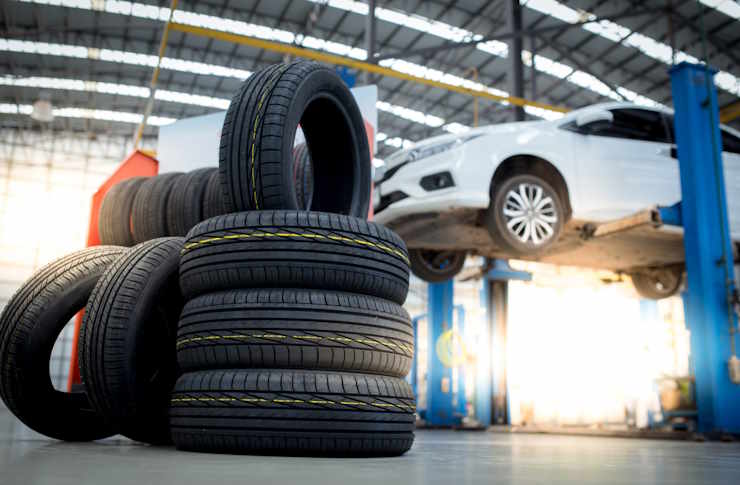Choosing Between Independent Workshops and Franchise Service Centers
Deciding where to service your vehicle affects maintenance routines, diagnostics accuracy, and long-term efficiency. This article outlines practical differences between independent workshops and franchise service centers, covering repairs, hybrid and electric care, telematics, and fleet considerations.

Choosing where to have routine work or unexpected repairs done requires balancing convenience, technical capability, and cost. Independent workshops and franchise service centers each offer distinct advantages: smaller garages may provide personalized attention and flexible scheduling, while franchise centers often deliver standardized processes, branded parts, and broader warranty alignment. Understanding how each handles maintenance, diagnostics, and specialized systems like hybrid or electric drivetrains helps vehicle owners choose the right option for their needs without assuming one model always outperforms the other.
maintenance and diagnostics
Independent workshops often excel at hands-on maintenance and quicker turnaround for routine tasks because of lower overhead and local relationships. Technicians in small garages may perform multiple tasks and can sometimes provide tailored recommendations for a vehicle’s history. Franchise service centers tend to follow manufacturer service schedules closely and use brand-specific diagnostic tools, which can be critical for warranty-sensitive repairs. For both options, clear communication about what diagnostics are performed and documented records of maintenance are important for resale value and insurance purposes.
repairs, tires, and safety
When it comes to repairs, the choice can affect parts sourcing and safety checks. Franchise centers typically offer OEM or approved parts and standardized safety inspections, which can reassure owners concerned about regulatory compliance or emissions testing. Independent shops may provide aftermarket options and often have flexible sourcing, which can be beneficial for older or out-of-warranty vehicles. Tire services are widely available at both types of providers; ask about wheel alignment, balancing, and safety checks to confirm consistent quality regardless of location.
hybrid and electric charging
Hybrid and electric vehicles introduce specific needs such as high-voltage system safety, battery diagnostics, and charging equipment checks. Franchise centers tied to manufacturers usually receive training and software updates for hybrid/electric systems and may offer certified charging maintenance. Some independent workshops are investing in EV-capable tools and training, but availability varies by area. Confirm that any provider handling EVs follows safety protocols for high-voltage components and can verify charging port connectivity and battery state of health with appropriate diagnostics.
telematics, navigation, and connectivity
Modern vehicles increasingly rely on telematics, navigation updates, and connected services to support efficiency and safety features. Franchise centers often have access to manufacturer software for connectivity resets, navigation map updates, and telematics provisioning—useful when services are tied to the vehicle brand or subscription. Independent shops may handle basic connectivity troubleshooting and third-party telematics solutions but might be limited for brand-specific software updates. For fleet operators, consistent telematics management can affect routing efficiency and maintenance scheduling.
insurance, registration, emissions, and fleet
Administrative matters such as insurance documentation, registration reminders, and emissions testing can influence the choice of service provider. Franchise centers sometimes streamline paperwork for warranty claims and manufacturer-related recalls, while independent workshops may assist with emissions pre-checks and offer flexible fleet servicing schedules. For commercial fleets, a provider’s ability to coordinate maintenance windows, track service history, and integrate with fleet management systems can improve uptime and operational efficiency.
| Product/Service | Provider | Cost Estimation |
|---|---|---|
| Standard maintenance (oil, filter, basic inspection) | Independent local workshop | $50 - $150 per service depending on oil type and region |
| Standard maintenance (oil, filter, basic inspection) | Midas / Firestone / Pep Boys (franchise examples) | $70 - $200, often tiered by oil grade and service package |
| Computer diagnostics (scan and fault report) | Independent local workshop | $50 - $120 for a basic diagnostic scan |
| Computer diagnostics (manufacturer-level scan) | Bosch Car Service / Franchise centers | $80 - $200 for advanced OEM-level diagnostics |
| Brake pad replacement (parts & labor) | Independent local workshop | $120 - $300 depending on parts and vehicle type |
| Brake pad replacement (franchise) | Midas / Firestone | $150 - $350, sometimes higher for OEM parts |
| EV charging system or high-voltage check | Bosch Car Service / Manufacturer franchise | $80 - $250 depending on depth of battery health checks |
Prices, rates, or cost estimates mentioned in this article are based on the latest available information but may change over time. Independent research is advised before making financial decisions.
Choosing a workshop depends on priorities: if manufacturer-specific software access, certified EV support, or warranty alignment matters, a franchise center may be preferable. If personalized service, potential savings, and flexible parts choices are more important, a reputable independent workshop can meet those needs. In practice, many owners use a mix—routine maintenance and tires at trusted local shops, and manufacturer-sensitive diagnostics or software-related updates at branded centers. Evaluating certifications, warranty implications, documented diagnostics, and clear pricing helps make an informed choice that aligns with your vehicle and usage patterns.






